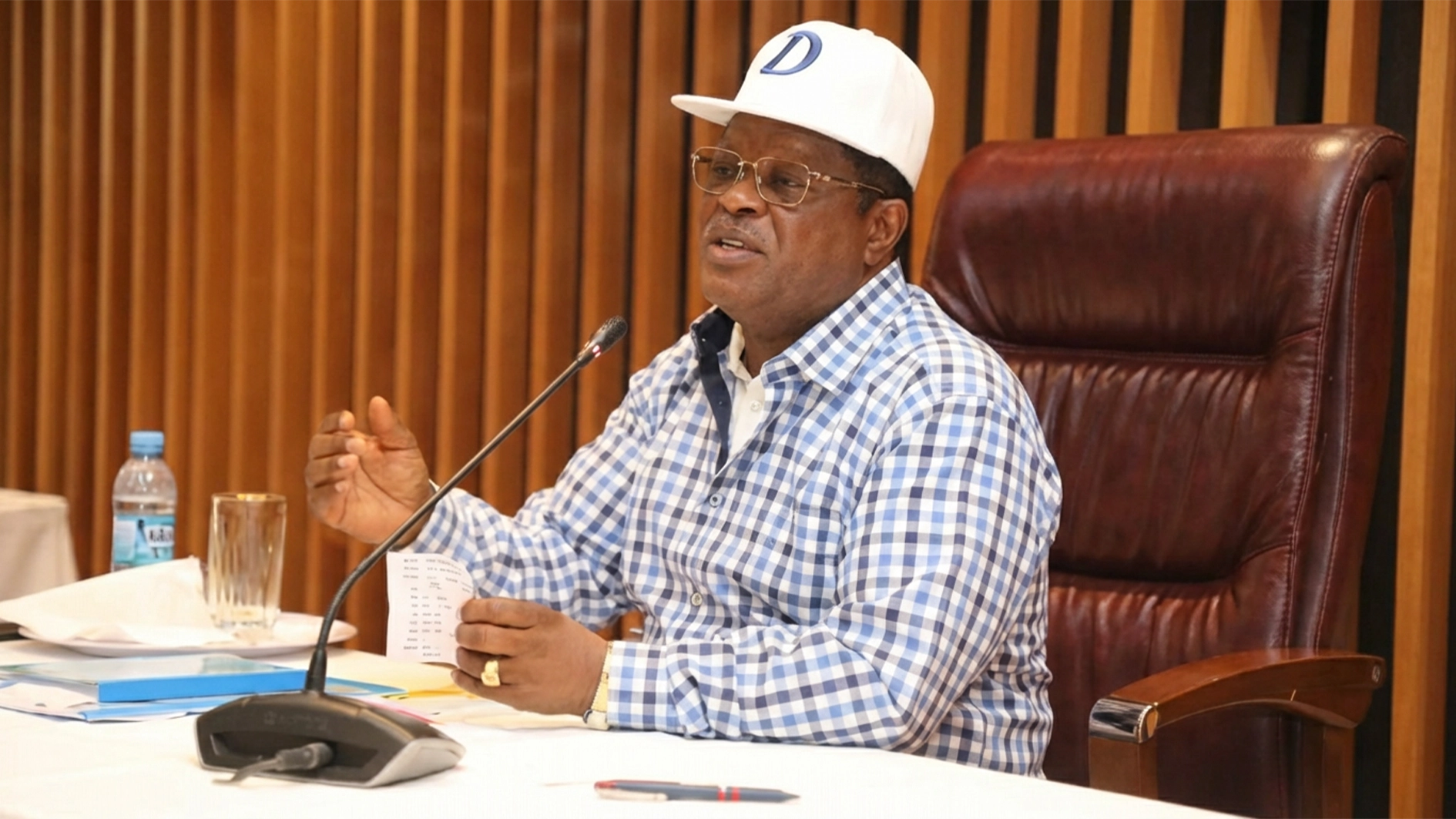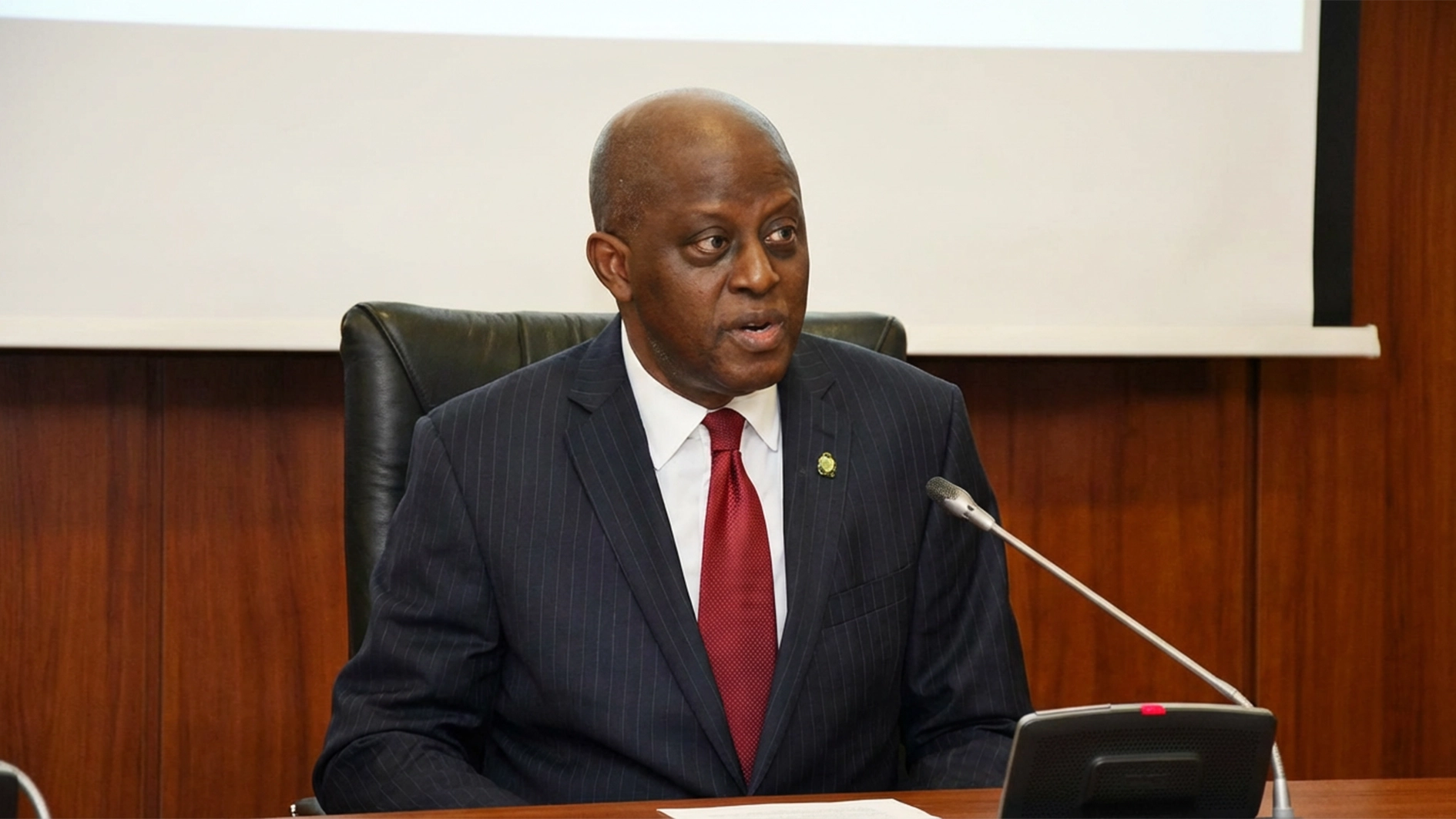The Senate on Thursday confirmed the appointment of Professor Joash Ojo Amupitan (SAN) as Chairman of the Independent National Electoral Commission (INEC), making him the sixth substantive occupant of the position since Nigeria’s return to democratic rule in 1999.
The confirmation, which was devoid of dissenting voices, was met with a chorus of commendations from lawmakers but also drew sharp criticism from segments of civil society, raising concerns about legislative independence and the credibility of the electoral body under the new leadership.
During plenary, Senate President Godswill Akpabio put the question to a voice vote and, with no objections raised, declared Professor Amupitan confirmed. He succeeds Professor Mahmood Yakubu, whose tenure expired earlier this month.
Akpabio, in his post-confirmation remarks, lauded Amupitan’s credentials, describing him as “a fit and proper person” for the job.
“We looked at your résumé. The DSS and Police have both confirmed that you have no criminal record. You have no known medical issues. You are eminently qualified,” he said.
The Deputy Senate President also gave a vote of confidence, while Senate Minority Leader, Senator Abba Moro, described Amupitan’s academic and professional background as “intimidating”, urging him to translate his wealth of experience into credible electoral outcomes.
“Having satisfied the constitutional requirements, I urge you to share how your academic and legal background will positively influence the conduct of elections in Nigeria,” Moro said.
Former Plateau State Governor and now Senator, Simon Lalong, testified to the nominee’s character, citing a longstanding relationship from their time at the University of Jos.
However, the session was not without moments of tension.
Akpabio’s attempt to prevent the nominee from responding to questions on the use of the Biometric Voter Accreditation System (BVAS) and the INEC Result Viewing (IReV) portal met stiff resistance from lawmakers. Senator Solomon Adeola, among others, insisted that the nominee must answer all outstanding questions before the confirmation process could proceed.
In a passionate address during the screening, Amupitan, a professor of law, vowed that under his leadership, no Nigerian voter would be left behind — even if drones must be deployed to ensure voter access in remote or insecure locations.
“No voter will be disenfranchised. We will invest in logistics and technology. Where necessary, drones will be used to deliver materials to hard-to-reach areas. Every eligible Nigerian must be able to vote,” he said.
He emphasised his commitment to civic education, transparency, and institutional accountability. He promised a nationwide voter education campaign and the establishment of an INEC Ethics and Compliance Committee to monitor internal conduct.
According to him, “When people understand the process, they are less likely to be manipulated. Our goal is to build an informed electorate that participates fully and freely.”
He also pledged to collaborate with the National Assembly on critical reforms, including the establishment of an Electoral Offences Commission to prosecute electoral crimes.
“INEC will be fiscally responsible. Every kobo will be accounted for in line with existing financial laws,” he said.
Despite the fanfare in the red chamber, the confirmation has drawn sharp criticism from civil society organisations. The Human Rights Writers Association of Nigeria (HURIWA), in particular, faulted the screening process as a “travesty” and accused the Senate of being an appendage of the executive.
In a strongly worded statement, HURIWA’s National Coordinator, Comrade Emmanuel Onwubiko, condemned what he described as a “short-cut” confirmation that bypassed the Senate Committee on Electoral Matters, a violation of the Standing Rules.
“The Senate has become a rubber stamp,” he said. “This confirmation was not about competence. It was about political calculation.”
He further alleged that Amupitan’s nomination was part of a larger plot by the executive to manipulate the 2027 general election.
“This is a special project by Mr President to retain power in 2027. The nominee is from the same ethnic stock as the President, and this raises questions of impartiality,” Onwubiko said, likening the appointment to similar controversial nominations under previous administrations.
He argued that Nigeria’s democratic institutions, including the legislature and judiciary, have been “captured”, and warned of the dangers of allowing partisan interests to influence electoral processes.
HURIWA called on Nigerian youths to resist voter apathy and mobilise for electoral participation, warning that rigged elections could trigger public unrest if not managed properly.
“The future of Nigeria lies in the hands of its youth. If they stand up, this attempt to manipulate our democracy will not succeed,” he said.
Since Nigeria’s transition to civilian rule in 1999, INEC has been led by a series of chairmen with varying degrees of public confidence: Justice Ephraim Akpata (1998–2000), who oversaw the 1999 transition elections; Dr Abel Guobadia (2000–2005); Prof Maurice Iwu (2005–2010); Prof Attahiru Jega (2010–2015), widely respected for overseeing the 2015 election that led to a peaceful transition of power; Prof Mahmood Yakubu (2015–2025); and acting chairpersons Mrs Amina Bala Zakari (2015) and Mrs May Agbamuche-Mbu (2025, pending Amupitan’s confirmation).
Amupitan’s appointment was initially endorsed by the National Council of State and transmitted to the Senate by President Bola Tinubu earlier in October.
Akpabio used the occasion to decry the conduct of local government elections across Nigeria, which he described as “a sham.”
He called on the Senate to initiate constitutional and legal amendments to ensure that local government elections, currently conducted by state electoral commissions, are made more credible and less susceptible to manipulation by state governors.
“The people deserve true representation at all levels. Local government elections in their current form are a disgrace to democracy,” Akpabio said.
With Amupitan now confirmed, expectations are high that his tenure will address these concerns and restore credibility to Nigeria’s electoral system, even as the road to 2027 becomes increasingly politically charged.
As Nigerians brace for another election cycle, the integrity of INEC’s new leadership will face intense scrutiny. Civil society, opposition voices, and pro-democracy advocates will be watching closely as the credibility of the 2027 general election may well hinge on whether Professor Amupitan can rise above the politics that brought him to power.






